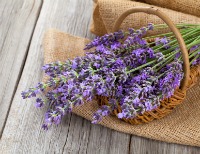Natural Therapies for a Good Nights Sleep

I continue this week with more tips on how to get a good nights rest. I would guess that 75% of my clients complain of not feeling rested upon waking, have trouble falling or staying asleep and many complain of waking multiple times during the night.
I hope my suggestions here will help you take back your sleep. And if these suggestions do not help, then consider testing your cortisol levels and steriod hormones as well. I can do that for you, just email me and I’ll send you more information. [email protected]
You may also want to try hypnotherapy. My good friend (and personal hypnotherapist)
Jill Thomas created a free audio/video hypnosis session on YouTube which you can experience below by clicking on the video. And if you’re in the San Diego area, you should call Jill directly.
Before your head sinks into the pillow at bedtime, there are some very simple things you can do to prepare mind and body for a night of deeply restful sleep. The evening hours are a time when the busyness of your day should begin to wind down. It’s important to create a bedtime ritual that will help tame the thoughts that may still be racing through your mind and which can prevent you from falling or staying asleep throughout the night.
Enjoy a warm bath including Epsom salts and/or lavender oil.
Listen to the relaxing sounds of ocean waves, classical music, or chimes. There are specialized acoustic recordings that are orchestrated to affect specific brain wave patterns for relaxation or sleep.
A guided recording of progressive muscle relaxation, deep breathing exercises, restorative yoga poses, can help the body create the ‘relaxation response’.
Herbal supplements and other botanical or aromatherapy treatments are useful for calming down after a stressful day. I.
Try meditation, beginning with just 10 minutes a day. Meditation has numerous health benefits and recent studies show it can significantly affect quality of sleep.

Soothing Herbs for Restful Sleep
Lavender (Lavendula species), Chamomile (Matricaria recutita), Oats (Avena sativa)
Three herbs well known for calming effects are Lavender, Chamomile and Oats. Perhaps, not quite as well known as the first two herbs, Avena sativa(Oats Milky Seed or Oatstraw) is the grain* source of oatmeal. The entire plant is abundant in minerals and trace nutrients, in particular the B-vitamins, calcium, and magnesium, which help soothe and strengthen the nervous system. As an herbal remedy, oats can ease the effects of stress, anxiety or exhaustion and resolve sleeplessness. Oats contain the amino acid tryptophan, which research shows promotes sleep. In fact, Scottish folks suggest a bowl of oatmeal before bedtime to ensure restful sleep!
Of its many medicinal uses, lavender is known worldwide as an herbal “rescue-remedy” for reducing stress, anxiety and tension. Its strong, relaxation-inducing scent is used in massage therapy lotions, candles, bath salts, tinctures and essential oils. (click to read more about essential oils) As one of the few essential oils that can be applied directly to the skin, a dab of lavender on the inside of your wrist can help soothe a stressful moment. Lavender is also used in teas, often paired with chamomile. If you aren’t a tea-drinker, dried lavender can be added to a sachet and placed beneath your pillow to help induce sleep.
There are many places where you can purchase lavender, (hint it’s NOT Amazon or eBay where you never know what you’re getting) yet what’s important to know is the sourcing of the lavender. For guidance about where to get high quality lavender, click here and visit my friend and colleague Sigal Zoldan’s website. She is offering a complimentary essential oils consultation to show you how to get 25% off your purchase.
Chamomile has been used for centuries as an herbal remedy for easing stress and insomnia. Today, these uses continue and we also have good clinical evidence for the safe use of chamomile preparations to help reduce inflammation, promote more restful sleep, ease colic and digestive upset, and facilitate wound healing when used in a cream. While chamomile seems to reduce the effects of anxiety, which can contribute to sleeplessness, more research is necessary to demonstrate the specific properties of chamomile that contribute to its effects.
*If you have sensitivity to gluten, be sure to use an oat product produced using gluten-free manufacturing practices.
Photo Credits: motorolka/bigstockphoto.com and olly2/bigstockphoto.com
References:
American Academy of Sleep Medicine. “Meditation May Be An Effective Treatment For Insomnia.” ScienceDaily. ScienceDaily, 15 June 2009. www.sciencedaily.com/releases/2009/06/090609072719.htm
Corliss, J. Mindfulness meditation helps fight insomnia, improves sleep. Harvard Health Newsletter. 18 February, 2015. http://www.health.harvard.edu/blog/mindfulness-meditation-helps-fight-insomnia-improves-sleep-201502187726
Murray, M. ìInsomniaî as cited in Pizzorno, Joseph E. (2013). Textbook of Natural Medicine. St. Louis, MO Elsevier. (chapter 182).
Mars, B. & Fiedler, C. (2015). The Home Reference to Holistic Health & Healing. Beverly, MA: Fair Winds Press. (pp. 29-29, 45, 193, 200).

